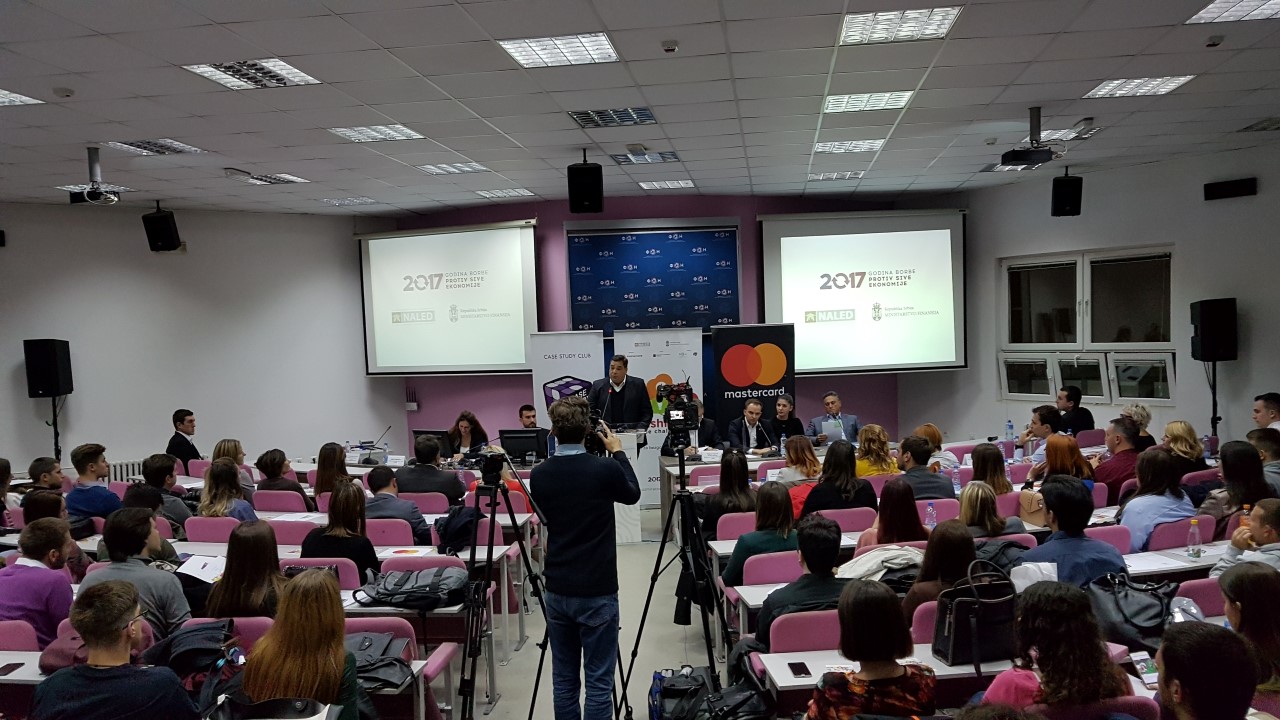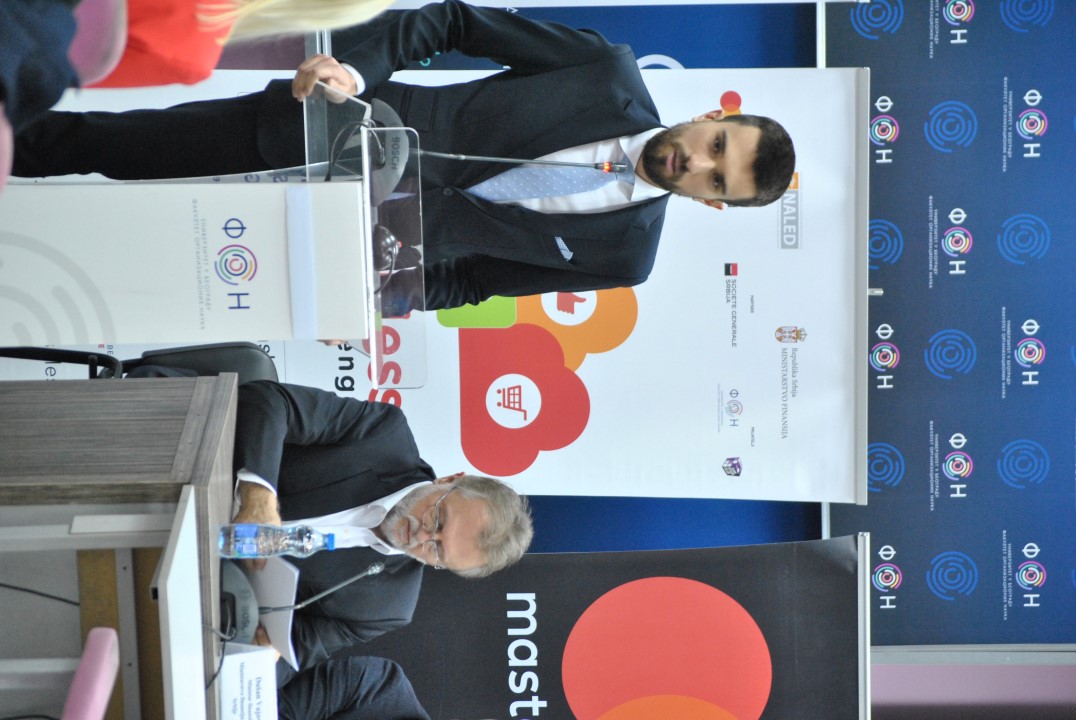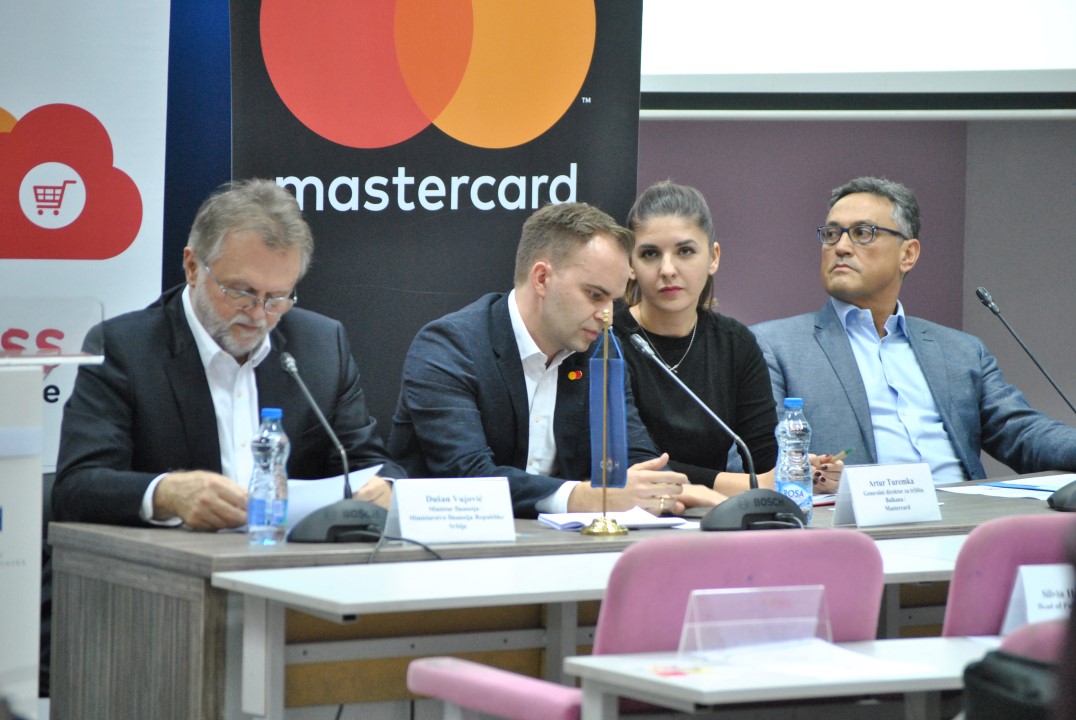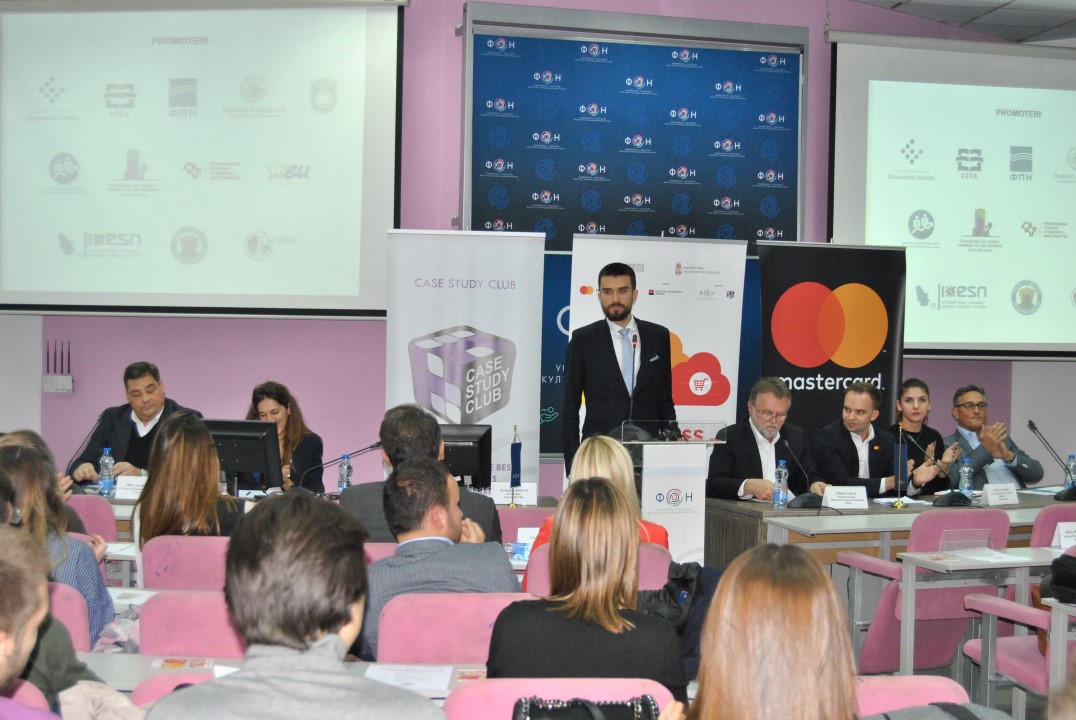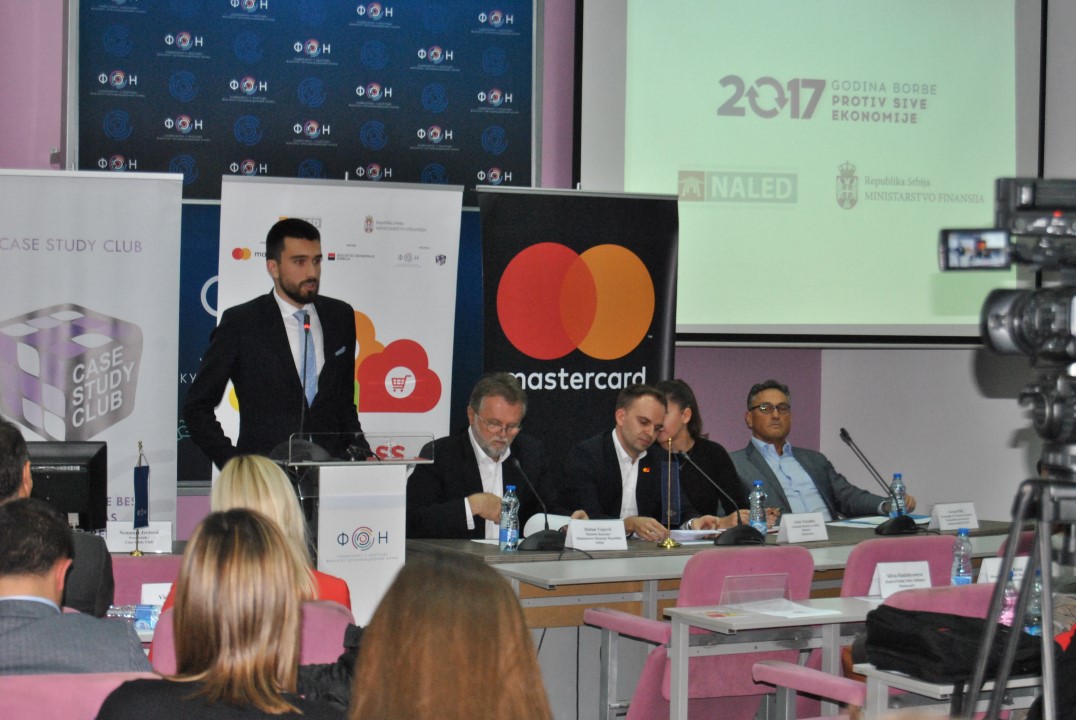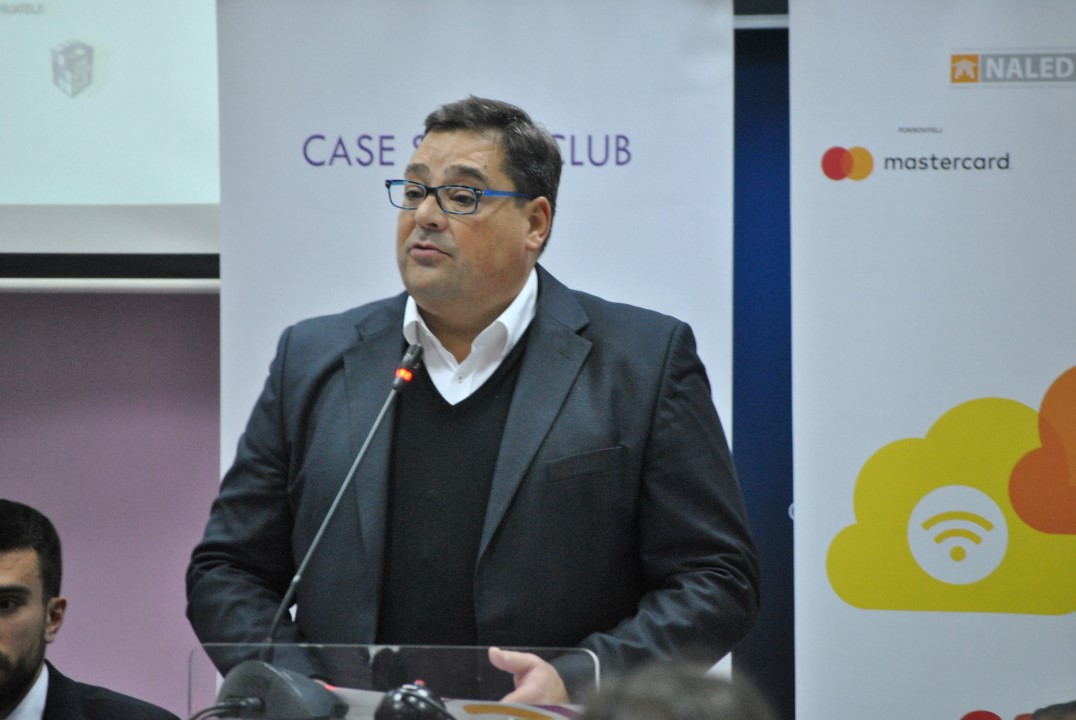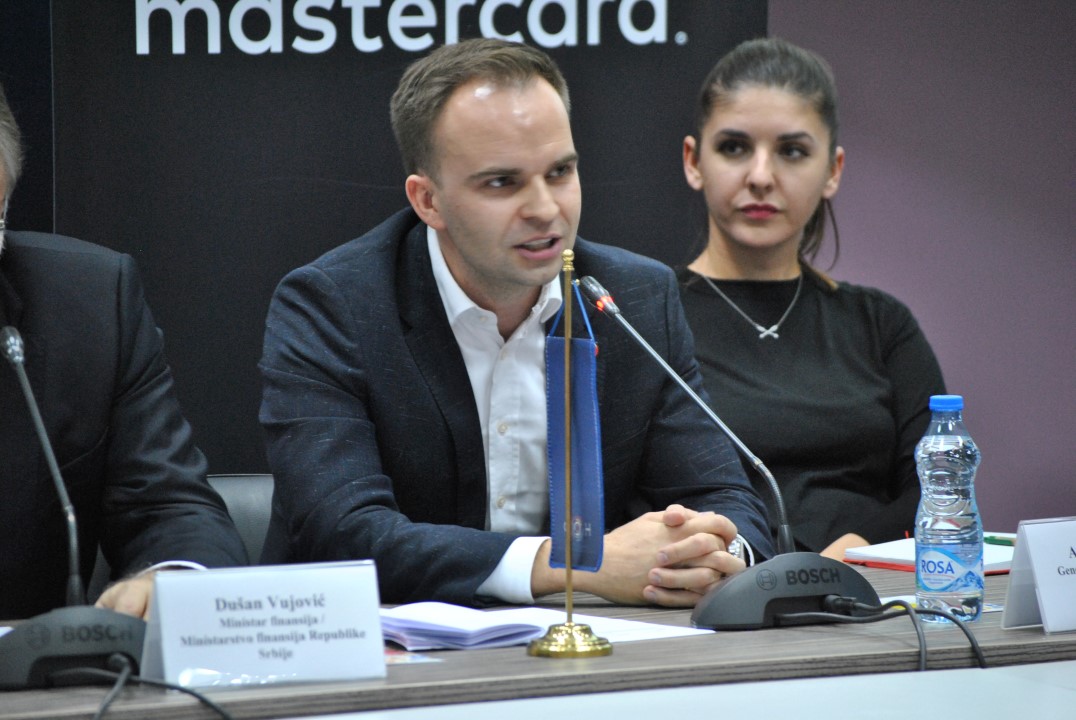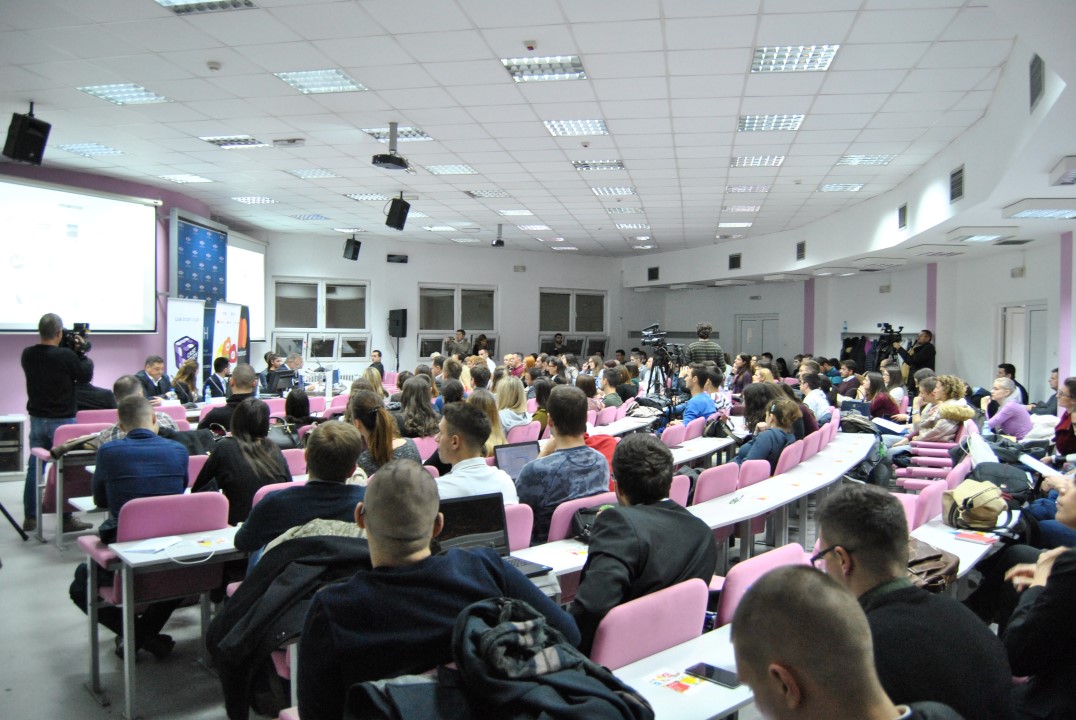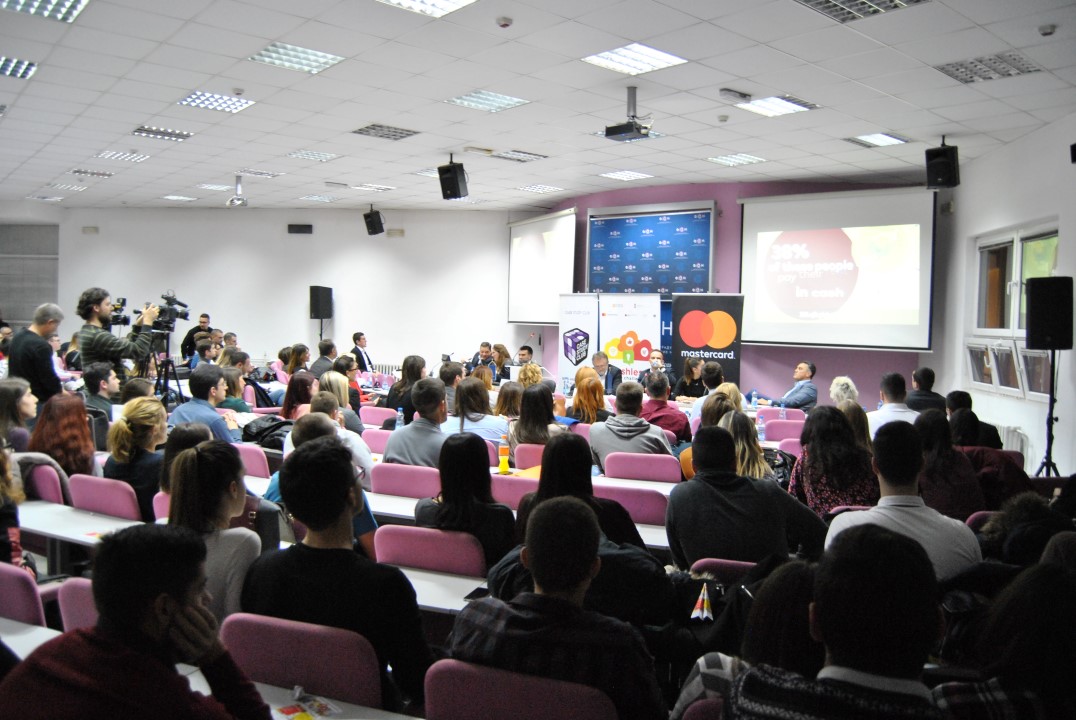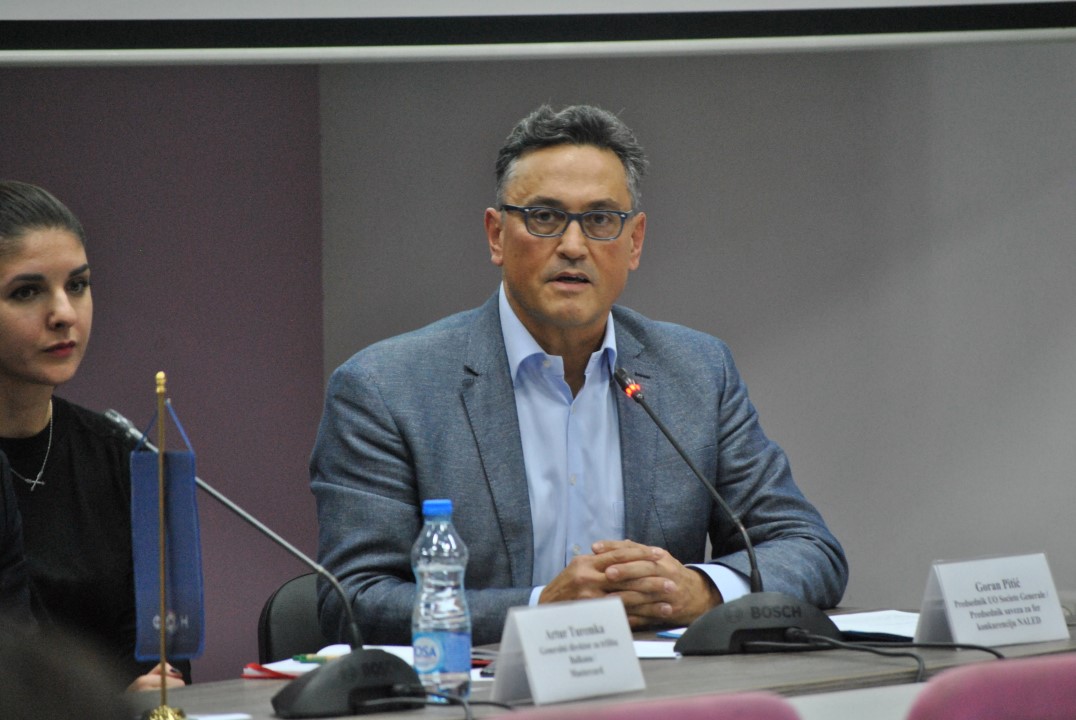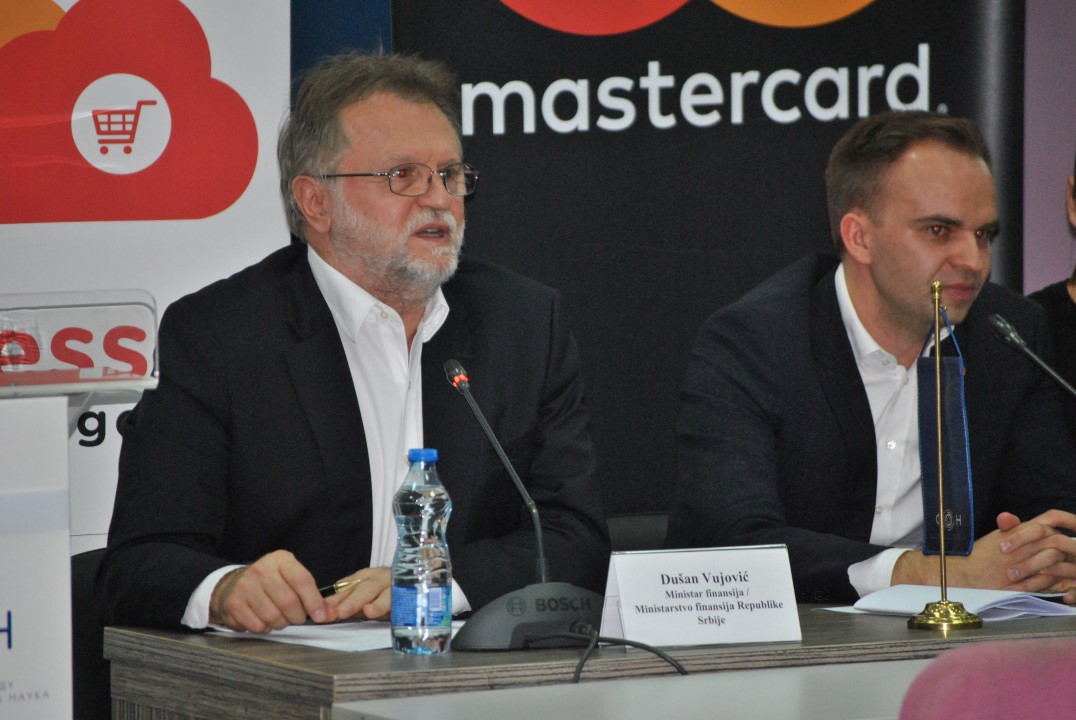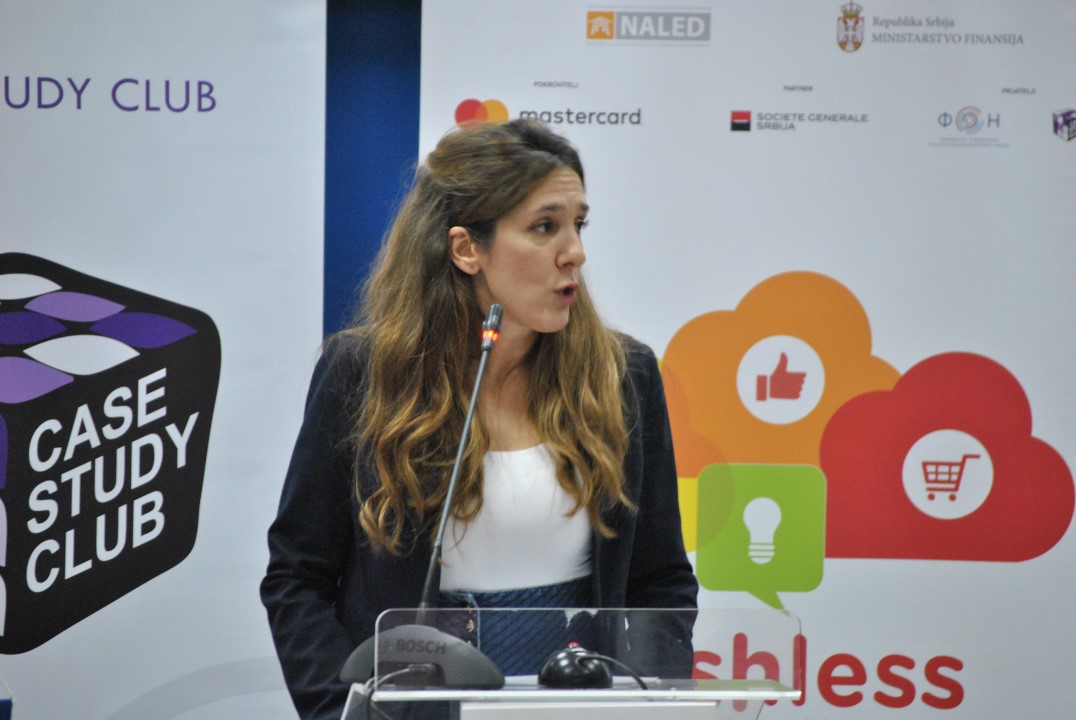Cashless Case Challenge student competition starts
On Monday, 6 November 2017, an introductory lecture at the Faculty of Organizational Sciences presented and launched the student competition Cashless Case Challenge 2017, as part of the educational campaign within the Year of Countering Shadow Economy.
The competition for the best student ideas that can contribute to the development of a cashless society in Serbia was launched by NALED and the Ministry of Finance with the support of Mastercard and Societe Generale Bank and in collaboration with the Faculty of Organizational Sciences and the Case Study Club.
The introductory lecture for students on the importance of countering shadow economy and reducing the use of cash payments was given by the Minister of Finance Dušan Vujović, General Manager of Mastercard Balkans Arthur Turemka and President of the Managing Board of Societe Generale Bank and Chairman of NALED’s Fair Competition Alliance Goran Pitić.
"The share of cashless payments in the most developed countries such as Singapore, Sweden, the Netherlands, France and Canada has already exceeded 60% of all transactions, or more than 80% of the total value of purchases, and some of them will completely abandon cash in the next decade. This is a global trend and it occurred as a result of the development of internet, free trade and the comfort of offering electronic forms of payment. Research has shown a clear link and the impact of reduced use of cash on economic growth, combating corruption, crime and the informal economy, and Serbia should follow this trend", said the Minister of Finance Dušan Vujović.
Mastercard General Manager for Balkan Artur Turemka reminded that although the level of shadow economy in Serbia is estimated above the EU level, there is a willingness of all market players to become involved in building a transparent financial system.
"The latest MasterIndex Serbia 2017 survey showed that 71% of respondents prefer card payments for the amounts above 1,500 dinars, which is an excellent indicator of the stable role that electronic payments play in the daily trading activities of Serbian citizens. We at Mastercard work with the banking, government and retail sectors to implement financial transparency solutions tailored to this market, and by launching the Cashless Case Challenge student competition, we want to hear how students, the technologically advanced generation of future leaders, see the development of cashless societies”, Turemka said.
Goran Pitić, President of the Managing Board of Societe Generale Bank in Serbia and Chairman of NALED’s Fair Competition Alliance, stressed that the National Program for Countering Shadow Economy envisages measures to encourage cashless payments and to consider ideas such as subsidizing entrepreneurs and micro-enterprises in the procurement of POS terminals or cashless tax credits.
"The first step in promoting cashless society can be made by the state by allowing its fees and services to be paid electronically. I call upon students to support the development of a cashless society with new ideas, and depending on the feasibility, the best proposals could be found in the National Program for Countering Shadow Economy, "said Pitić.
Electronic payment allow the transaction to be recorded and visible to tax authorities even when the fiscal account has not been issued. However, new NALED research shows, that only 23% of citizens in Serbia favor cards, which clearly suggests that there is huge room to encourage cashless payments as a good way to advance economic development, strengthen the tax culture, and curb the shadow economy.
Competition rules
The Cashless Case Challenge 2017 is open to all Serbian citizens who are currently in their third, fourth and fifth year of graduate and postgraduate studies of all faculties and colleges in Serbia and abroad. They need to form teams of three members, but they are not required to be from the same faculty.
Starting from 7 November, interested students will be able to download the competition rules, the application form and the case study or the task they need to solve via website www.uzmiracun.rs. The deadline for applications is 1 December until 11:59 pm. The five-member jury (NALED, Ministry of Finance, Mastercard, Societe Generale Bank and FON) will select a maximum of top 10 teams that have offered original, viable and sustainable solutions that affect the suppression of the informal economy and contribute to youth financial inclusion.
Final presentations and a selection of the best works are scheduled for 17 December. The winning team will win paid six-month internships for each member in NALED, Mastercard or Societe Generale Bank. The prize pool includes, among other things, tablets for members of the top three teams, promotion of ideas of the top five teams on the website uzmiracun.rs, etc.
This website uses cookies to ensure the best user experience. By continuing to browse the site, you consent to the use of cookies.
CONTINUE LEARN MORE
